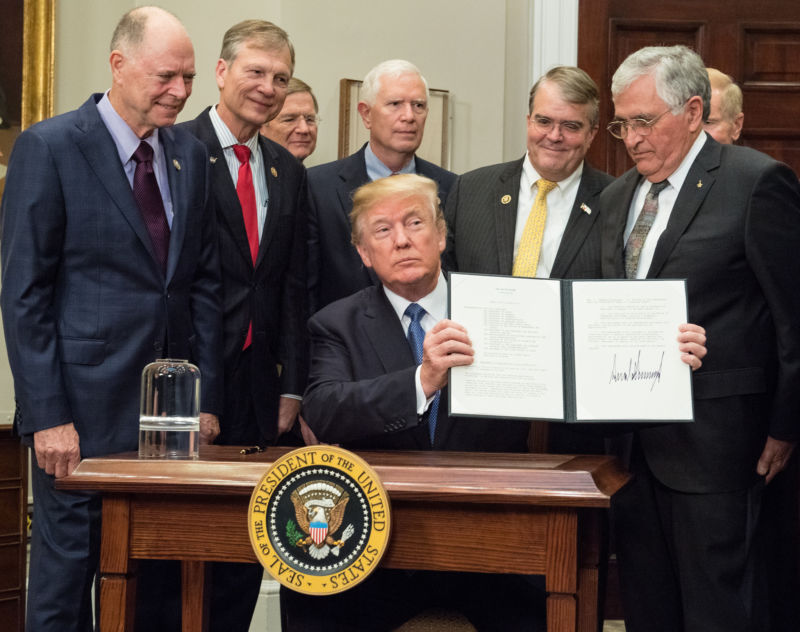
NASA
The budget to be proposed for NASA later today will offer some preliminary support for a lunar exploration program, but has no specific timelines for when humans might return to the surface of the Moon—nor funding to make such an ambitious undertaking happen.
The White House will release its fiscal year 2019 budget for the space agency at 1pm ET today, and although Congress sets the budget for the United States, this document offers a good overview of the Trump administration's plans for NASA. Ars reviewed a copy of the budget documents to be released today.
The FY 2019 budget provides a top-line number of $19.892 billion for NASA, an increase over the FY 2018 budget of $19.519 billion that is largely attributable to the recent budget agreement passed by Congress, which raises spending levels for defense and discretionary spending.
The budget makes several structural changes to NASA's budget, including ending funding for a separate "Space Technology" directorate created by the Obama administration, and rolling that research into the "Deep Space Exploration Systems" account. It also adds $150 million for a new program to speed up the commercialization of low-Earth orbit, because, as previously reported, the White House would like to see NASA funding for the International Space Station end in 2025.
No giant leaps
Perhaps the most significant thing about this budget proposal is that, although the White House has made a big show about returning humans to the surface of the Moon, there are no giant leaps toward that goal in this plan. Rather there are incremental steps that, if followed over the next decade, may allow astronauts to eventually set foot on the lunar surface again.
For example, under a table titled "Lunar Exploration Campaign," the agency will fund small- to medium-sized landers between now and 2023 (up to 1,000kg to the surface of the Moon), before finally beginning work on a human-rated lander in late 2023 or 2024. There is no projected date for actual human landings, which presumably would come much later in the decade. (Certainly these would not occur before 2024, the last year of a Trump presidency if he were to win a second term).
Moreover, this notional timeline for a lunar program start has little or no actual budget attached to it, and there are no details in this document about whether such a program would include robust international partnerships, or the extent to which private-partnerships would be utilized. In short, not much appears to have changed. NASA will continue to fund a "gateway" concept for a small outpost in orbit near the Moon in the mid-2020s, with landings somewhere, at some point in the distant future.
Under these plans, NASA will continue funding for the Space Launch System rocket and Orion spacecraft, although it does not provide funding for a second mobile launcher. Nor are funds specified in these documents to upgrade the SLS rocket from its initial 70-ton configuration for side boosters and other modifications needed reach its full potential of 130 tons.
Science
Another notable area of the budget is its changes to NASA's science budget. While there were widespread concerns that the Trump administration would kill off much of NASA's funding for Earth science, which includes climate change research, the proposed budget only cuts about 6 percent of funding, down to $1.784 billion for 2019. Astrophysics (a 12 percent cut) is another loser.
The budget for Planetary science is among the winners, seeing an increase to $2.234 billion for the coming fiscal year, with this additional money needed if NASA is to launch an ambitious mission to Jupiter's icy moon of Europa in the early 2020s.
Read Again Proposed NASA budget takes one small step toward the Moon : http://ift.tt/2BTHpRMBagikan Berita Ini














0 Response to "Proposed NASA budget takes one small step toward the Moon"
Post a Comment